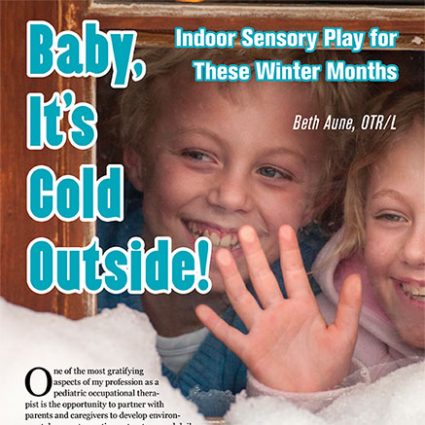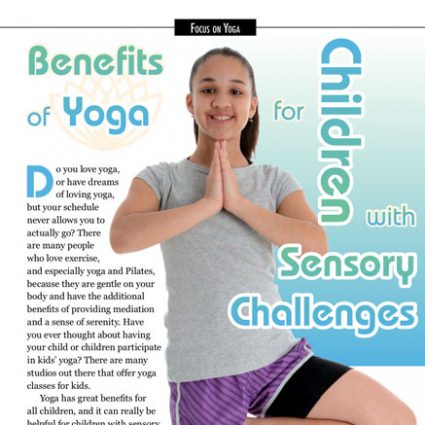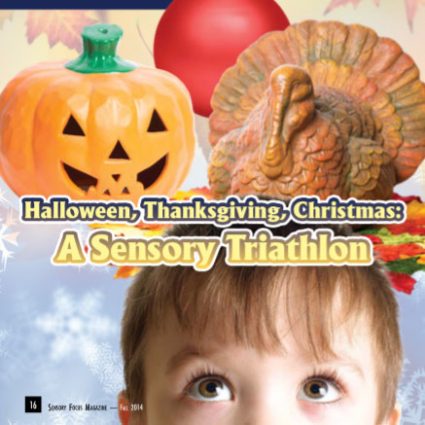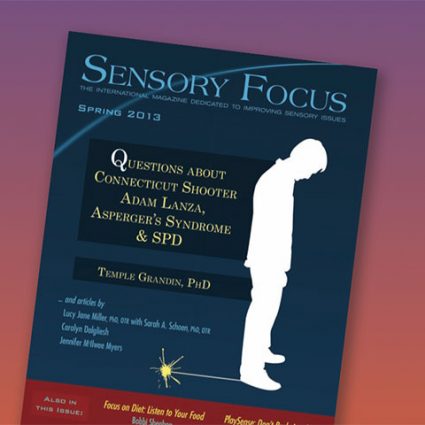Free Articles From Sensory World Magazine
Listen to Your Food
Bobbi Sheahan
When trying to figure out a sensory issue, you might reconsider which senses are involved, even if it doesn’t seem to make sense at first. When you think about the sensory issues in your family, what’s at the top of the list? For many of us, it’s food.
Baby, It’s Cold Outside!
Beth Aune, OTR/L
One of the most gratifying aspects of my profession as a pediatric occupational therapist is the opportunity to partner with parents and caregivers to develop environmental supports, routines, structure, and daily activities to address the unique challenges and abilities of their children who have sensory-based concerns.
Benefits of Yoga for Children with Sensory Challenges
Britt Collins, MS, OTR
Do you love yoga, or have dreams of loving yoga, but your schedule never allows you to actually go? There are many people who love exercise, and especially yoga and Pilates, because they are gentle on your body and have the additional benefits of providing mediation and a sense of serenity. Have you ever thought about having your child or children participate in kids’ yoga? There are many studios out there that offer yoga classes for kids.
Halloween, Thanksgiving, Christmas: A Sensory Triathlon
Jennifer McIlwee Myers
Fall brings us cooler evenings, color-changing leaves, and, of course, the inevitable articles about how to help your child cope with the holidays despite their struggles with SPD. There are a lot of standard items in these articles that are extremely helpful, such as lists of items to keep on or about your person (such as acceptable snacks, earplugs, and tranquilizer darts for relatives who don’t believe in SPD).
Questions About Connecticut Shooter Adam Lanza, Asperger’s Syndrome & SPD
Temple Grandin, PhD
Many people in the special-needs community are concerned about news reports that indicate Adam Lanza, the gunman who killed the children and teachers at the school in Connecticut, had Asperger’s syndrome and perhaps Sensory Processing Disorder (SPD). They fear that this information will make the public think that individuals with these disorders are inherently violent.






